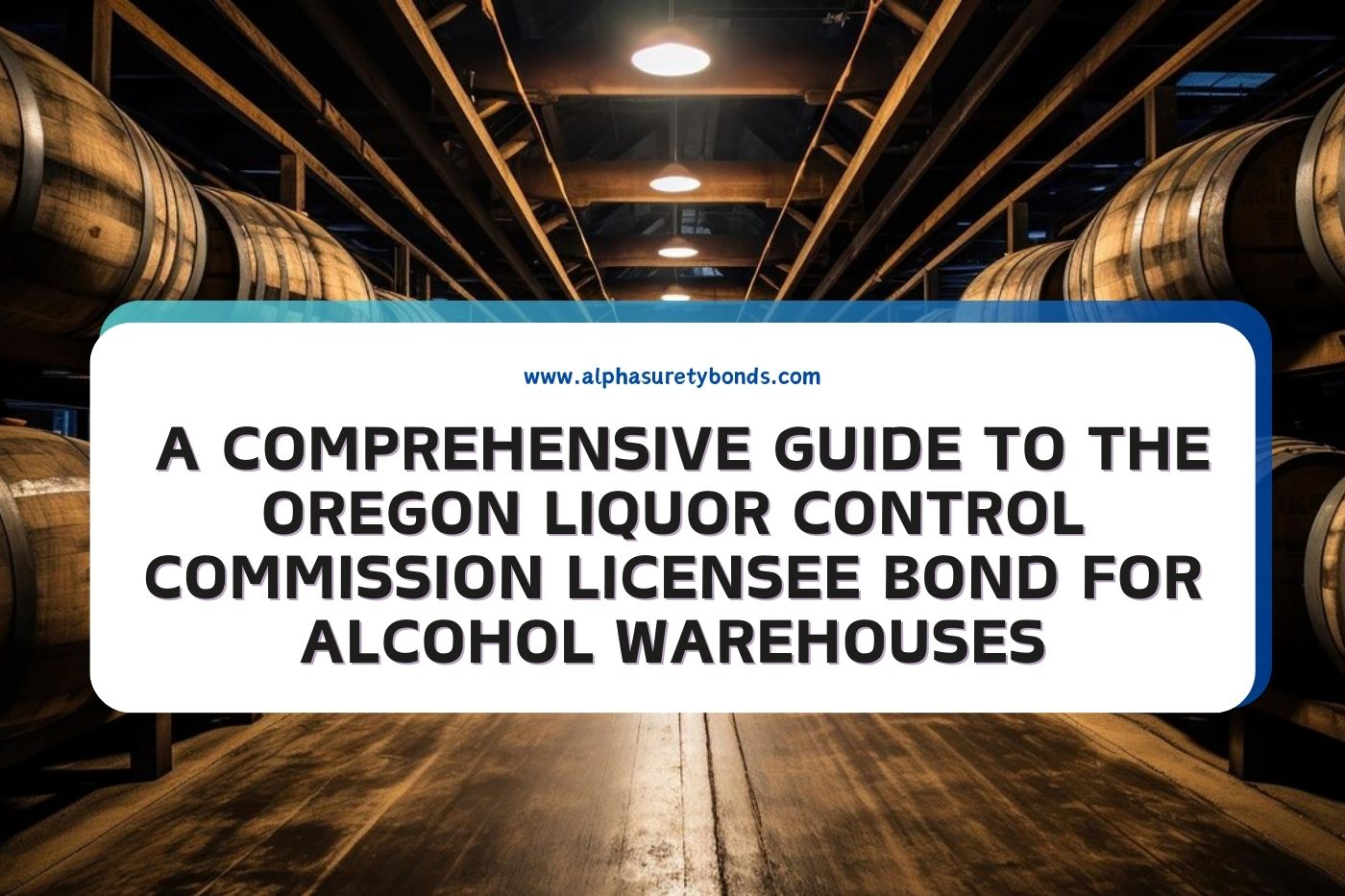Get An Instant Quote on the Oregon Liquor Control Commission Licensee Bond for Wineries
Oregon Liquor Control Commission (OLCC) Licensee Bond: Definition and Purpose
Explanation of what an OLCC Licensee Bond is
An OLCC Licensee bond is a type of surety bond that wineries in the state of Oregon are required to obtain before they can legally operate. The main function of this bond is to guarantee that licensees, including wineries, will comply with all rules and regulations set by the Oregon Liquor Control Commission (OLCC).
The bond serves as a form of financial security that ensures that businesses like wineries follow their obligations under law, thus protecting both consumers and the state from potential damages caused by non-compliance.
Purpose of the OLCC Licensee Bond for Wineries
For wineries specifically, the purpose of this bond is multi-fold:
- It assures compliance with all relevant federal, and state laws and OLCC regulations.
- It guarantees payment for taxes or fees due to the State.
- It protects consumers against fraudulent practices or unethical behavior from wine producers.
This protection extends not only to customers but also to employees who might be adversely affected by any noncompliant action on the part of bonded establishments.
Requirements for Obtaining an OLCC Licensee Bond
Detailed list requirements
To secure an OCCL licensee bond for your winery:
- Ensure you meet minimum qualification requirements. These include age restrictions (over 21 years), and no criminal record related to liquor law violations among others.
- Complete a detailed application. This includes business details such as address & contact info; individual information about owners/partners etc.; type(s) wine produced; expected annual production volume etc.
- Provide necessary documents. Include zoning permits/proofs where required; tax registration certificate if applicable; statement verifying legal rights over property/premises used etc.
Explanation Application Process
After submission applicants will be subject to a background check and inspection of the proposed business premises by OLCC representatives. If approved, the bond amount is determined based on estimated annual sales/tax liability figures provided in the application.
Cost of an OLCC Licensee Bond for Wineries
Factors Influencing Cost
The cost of acquiring an OLCC Licensee Bond depends on several factors including:
- The winery’s financial health: This includes credit score, assets & liabilities, etc.
- Estimated gross sales or tax liability: Higher estimates lead to higher bond amounts hence increased costs.
- Type(s) wine produced: Different types may attract different license fees affecting overall cost.
Average Cost Range
Generally, bond premiums usually range between 1%-15% of the total bond amount depending upon the aforementioned factors.
Consequences of Not Having an OLCC Licensee Bond
Legal Implications
Not having this mandatory licensee bond can result in legal consequences such as suspension/revocation of licenses; penalties/fines; possible civil action from harmed parties etc.
Financial implications
Financially, failure to obtain required bonds might mean loss of potential revenue due to closure of business and non-compliance fines that could run thousands of dollars even imprisonment in severe cases.
How To Apply for OLCC Licensee Bond
A detailed step-by-step guide application process along with a list of necessary documents and information required to complete it are available at the official website Oregon Liquor Control Commission (OLCC).
Simply follow the instructions provided to ensure you have all necessary documentation ready before starting your application to avoid unnecessary delays approval process.
Renewal Maintenance
For renewal and maintenance guidelines kindly refer to the designated section found within the comprehensive manual present online at OCCL’s webpage which offers clear details regarding both procedures as well as critical dates and deadlines.
Common Issues Solutions
Common issues experienced include understanding complexity rules regulations stipulated compliance them maintaining records all transactions meet reporting requirements among others professional help through agencies specialized regulatory compliance is often beneficial in addressing these issues..
Expert Opinions Advice OLCC Licensee Bond
Consult industry experts for personalized advice regarding your specific circumstances and tips for success, as they can provide valuable guidance based on their years of experience in the field.
Final Thoughts
In conclusion, an Oregon Liquor Control Commission (OLCC) Licensee Bond serves a critical role in maintaining the integrity and credibility of wine businesses in Oregon by assuring compliance with all relevant regulations while protecting both consumers and state interests.
For those seeking to start or maintain a winery business within Oregon, acquiring this bond should be viewed not just as a mandatory requirement but also strategic investment toward ensuring long-term viability and sustainability of your enterprise.










